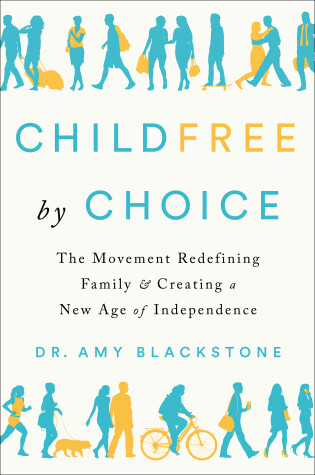From Dr. Amy Blackstone, childfree woman, co-creator of the blog we're {not} having a baby, and nationally recognized expert on the childfree choice, comes a definitive investigation into the history and current growing movement of adults choosing to forgo parenthood: what it means for our society, economy, environment, perceived gender roles, and legacies, and how understanding and supporting all types of families can lead to positive outcomes for parents, non-parents, and children alike.
As a childfree woman, Dr. Amy Blackstone is no stranger to a wide range of negative responses when she informs people she doesn't have--nor does she...Read more
From Dr. Amy Blackstone, childfree woman, co-creator of the blog we're {not} having a baby, and nationally recognized expert on the childfree choice, comes a definitive investigation into the history and current growing movement of adults choosing to forgo parenthood: what it means for our society, economy, environment, perceived gender roles, and legacies, and how understanding and supporting all types of families can lead to positive outcomes for parents, non-parents, and children alike.
As a childfree woman, Dr. Amy Blackstone is no stranger to a wide range of negative responses when she informs people she doesn't have--nor does she want--kids: confused looks, patronizing quips, thinly veiled pity, even outright scorn and condemnation. But she is not alone in opting out when it comes to children. More people than ever are choosing to forgo parenthood, and openly discussing a choice that's still often perceived as taboo. Yet this choice, and its effects personally and culturally, are still often misunderstood.
Amy Blackstone, a professor of sociology, has been studying the childfree choice since 2008, a choice she and her husband had already confidently and happily made. Using her own and others' research as well as her personal experience, Blackstone delves into the childfree movement from its conception to today, exploring gender, race, sexual orientation, politics, environmentalism, and feminism, as she strips away the misconceptions surrounding non-parents and reveals the still radical notion that support of the childfree can lead to better lives and societies for all.
